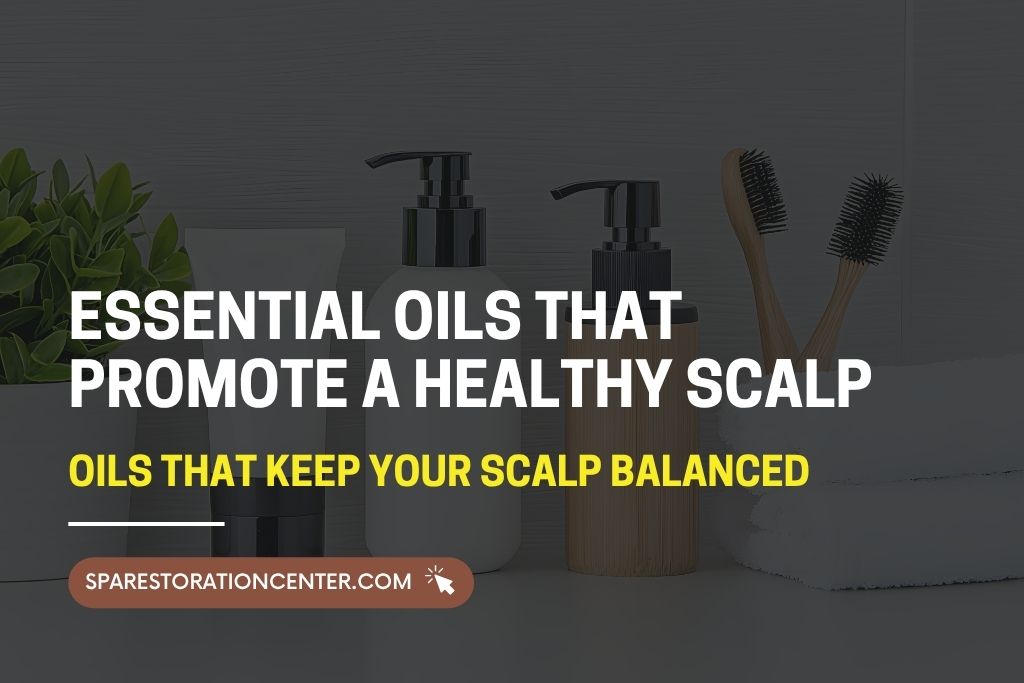
Essential Oils That Promote a Healthy Scalp
Healthy hair starts with a healthy scalp. When your scalp is in good shape, your hair can grow stronger, shinier, and thicker. But many people deal with scalp problems like:
- Dryness
- Itchiness
- Dandruff
These issues can make your scalp uncomfortable and even affect hair growth.
While there are lots of hair products out there, many contain harsh chemicals that can make things worse. Essential oils are a natural and gentle option. They can:
- Nourish your scalp
- Balance oil levels
- Reduce irritation and dryness
In this article, you’ll learn:
- The best essential oils for a healthy scalp
- What makes each oil special
- Easy ways to use them safely
Whether you want to stop dandruff, calm a dry scalp, or encourage hair growth, essential oils can help. With the right care, you can have a clean, healthy scalp and beautiful hair from root to tip.
Best Essential Oils for a Healthy Scalp
Each essential oil has its own special benefits for your scalp and hair. Some help with dandruff, while others make your hair grow stronger and thicker. Here are some of the best oils to try:
1. Tea Tree Oil
Tea tree oil is one of the best oils for keeping your scalp clean and healthy. It fights bacteria and fungus that cause dandruff and itching. It also helps control extra oil on the scalp.
Benefits:
- Fights dandruff and flakes
- Reduces itching and irritation
- Keeps your scalp clean
How to use:
Mix 2–3 drops of tea tree oil with a tablespoon of coconut or jojoba oil. Massage it into your scalp for about 10–15 minutes, then rinse or shampoo your hair. You can also add a few drops to your regular shampoo.
2. Peppermint Oil
Peppermint oil gives a cool, refreshing feeling that wakes up your scalp. It helps blood flow to your hair roots, which can help hair grow faster and stronger.
Benefits:
- Boosts hair growth
- Soothes dryness and irritation
- Helps your scalp feel clean and fresh
How to use:
Add 2–3 drops of peppermint oil to your shampoo or mix it with a carrier oil. Gently massage it into your scalp. Always dilute it before use—it’s very strong.
3. Lavender Oil
Lavender oil smells great and helps your scalp stay calm and balanced. It can help reduce dryness, itching, and even promote new hair growth.
Benefits:
- Helps hair grow
- Reduces dryness and irritation
- Balances oil on the scalp
How to use:
Mix a few drops of lavender oil with coconut or olive oil. Massage it into your scalp and leave it on for 20–30 minutes before washing your hair.
4. Rosemary Oil
Rosemary oil is great for people who want thicker, fuller hair. It strengthens hair roots and helps reduce thinning.
Benefits:
- Encourages thicker hair
- Strengthens roots
- Improves scalp circulation
How to use:
Combine a few drops of rosemary oil with jojoba or argan oil. Massage your scalp for 5 minutes, then leave it on for 30–60 minutes before washing. Use it 2–3 times a week for best results.
5. Chamomile Oil
Chamomile oil is gentle and works well for people with sensitive skin. It calms irritation, adds shine, and makes hair soft.
Benefits:
- Soothes sensitive skin
- Adds shine and softness
- Reduces redness and dryness
How to use:
Add 3–4 drops to your conditioner or mix it with a carrier oil for a relaxing scalp massage. Leave it on for 15–20 minutes, then rinse.
6. Lemongrass Oil
Lemongrass oil helps fight dandruff and keeps your scalp smelling clean and fresh. It also makes your hair roots stronger.
Benefits:
- Fights dandruff
- Strengthens hair
- Refreshes your scalp
How to use:
Mix 2–3 drops with water in a small spray bottle. Lightly spray it on your scalp after washing. You can also mix it with a carrier oil for deeper care.
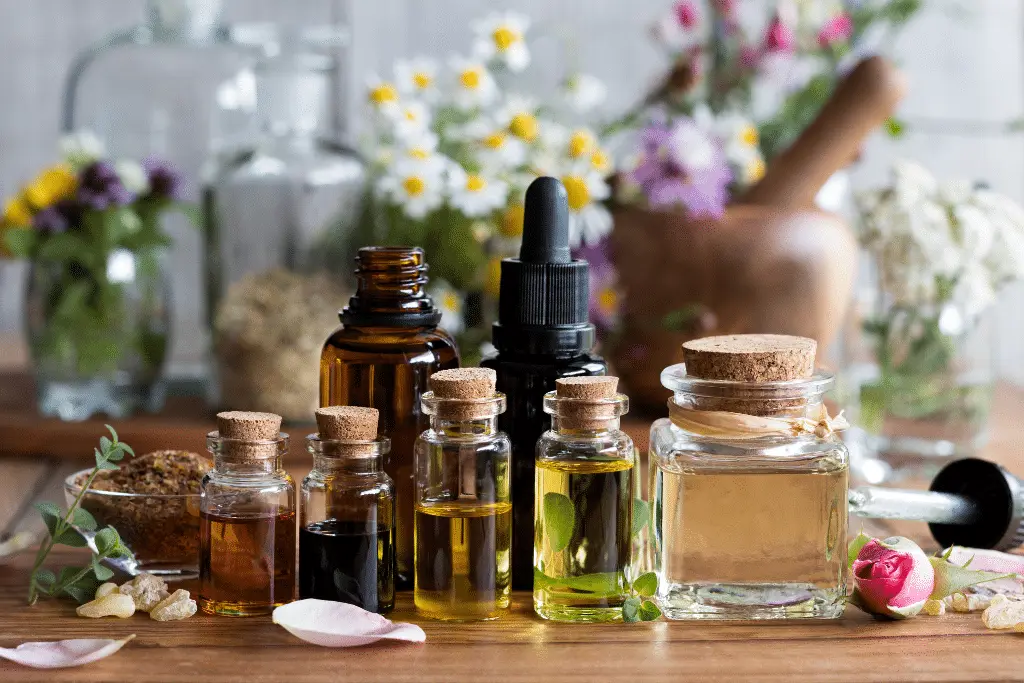
Choosing the Right Oil for You
Everyone’s scalp is different. If your scalp is oily, try peppermint or tea tree oil. If your scalp is dry or sensitive, lavender or chamomile oil may work better. You can also mix oils to create your own custom blend.
No matter which oils you use, always:
- Dilute them with a carrier oil (like coconut or jojoba).
- Do a patch test first to check for irritation.
With the right essential oils and a little care, your scalp can stay healthy—and your hair can look its best!
Which Essential Oils Are Good for Dandruff?
Dandruff happens when your scalp is dry, itchy, or irritated. Some essential oils can help fight it naturally. Tea tree oil works well. It kills bacteria and fungus that cause flakes. Peppermint and rosemary oils also help. They improve blood flow and keep your scalp healthy.
Lavender and chamomile oils are gentle. They calm redness and dryness. Lemongrass oil cleans the scalp and controls extra oil. Using these oils often can reduce flakes. They help your scalp stay comfortable without harsh chemicals.
Can Essential Oils Promote Hair Growth?
Yes, some essential oils can help hair grow. Rosemary and peppermint oils are the most popular. They increase blood flow to the scalp.
Better blood flow brings more oxygen and nutrients to hair roots. This can make hair stronger and healthier. Essential oils are not a cure for baldness. But regular use can support a healthy growth cycle.
How Can You Use Essential Oils for a Healthy Scalp?
Essential oils work best when used safely and correctly. Always mix a few drops with a carrier oil, like coconut or jojoba oil. This makes the oil gentle on your skin.
You can massage the mixture directly into your scalp. Massaging helps blood flow and spreads the oil evenly. Leave it on for 15–30 minutes, then wash your hair as usual.
You can also add essential oils to your shampoo or conditioner. This is an easy way to use them every day.
Tips for using essential oils:
- Start with a small amount to avoid irritation.
- Do a patch test on your skin first.
- Use 2–3 times a week for best results.
- Mix with a carrier oil to keep it safe.
Using oils regularly can keep your scalp healthy, reduce irritation, and help your hair grow stronger.
What Are the Best Oils for Dry Scalp?
A dry scalp is not moist. It can feel itchy, flaky, and uncomfortable. The best oils for a dry scalp are those that hydrate and calm irritation.
Some of the top essential oils include:
- Lavender oil – soothes irritation and redness
- Chamomile oil – reduces inflammation and calms the scalp
These oils work best when diluted in a carrier oil, like argan or jojoba oil. Massage the mixture into your scalp to restore moisture and balance. Regular use can make your scalp feel comfortable and healthy again.
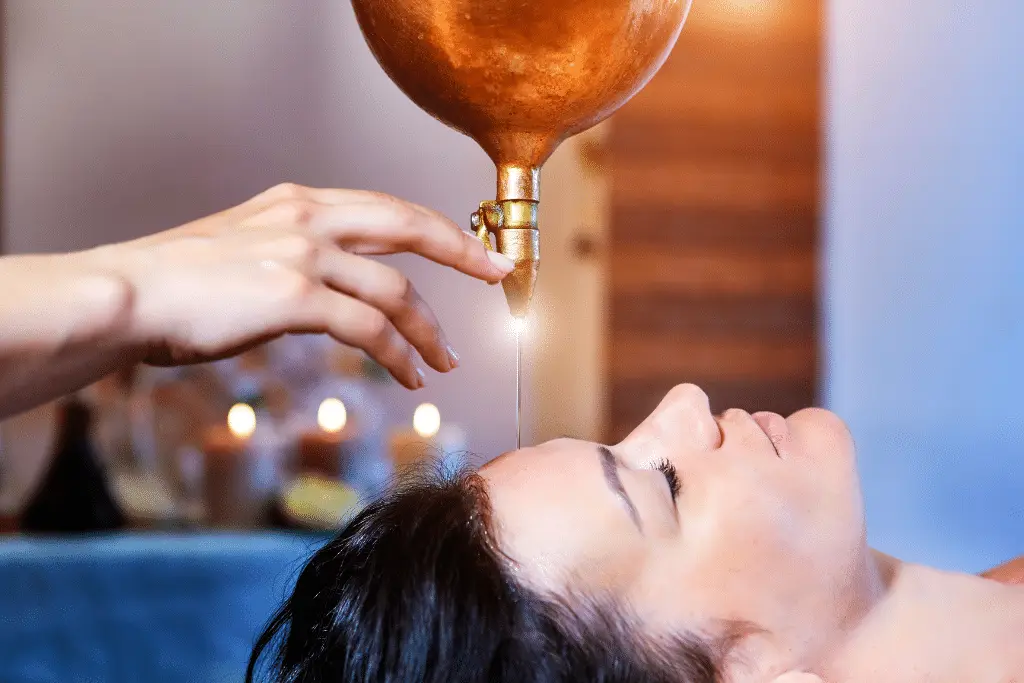
Visit a Spa Restoration Center in Arlington and Pamper Yourself with Essential Oils!
Treat yourself to some well-deserved relaxation. Spa restoration centers in Arlington use essential oils to help your scalp, hair, and body feel refreshed.
You can enjoy:
- Scalp massages with nourishing oils
- Aromatherapy to relax your mind
- Treatments that hydrate dry hair and soothe irritation
Essential oils like lavender, chamomile, and peppermint make the experience even better. Visiting a spa in Arlington is a great way to care for your scalp, reduce stress, and leave feeling refreshed from head to toe.
Frequently Asked Questions
1. Can essential oils cause irritation or allergies on the scalp?
Yes, some people may be sensitive or allergic to certain essential oils. Always do a patch test on a small area of skin before using a new oil on your scalp. It’s also important to dilute essential oils with a carrier oil to reduce the risk of irritation.
2. How often should I use essential oils for scalp care?
Most people use essential oils once or twice a week. Using too much can irritate the scalp. Pay attention to how your scalp feels and adjust the frequency if needed.
3. Are essential oils safe for color-treated or chemically processed hair?
Most essential oils are safe for treated hair. However, some oils, especially citrus oils, can lighten hair color if exposed to sunlight over time. When in doubt, do a strand test or ask your hairstylist before using.
4. What is the best way to dilute essential oils for scalp use?
Mix essential oils with 1–3 times the amount of a carrier oil, like coconut, jojoba, or almond oil. This keeps the oils effective but gentle enough for your scalp.
5. Can I mix multiple essential oils together for better results?
Yes! You can create a blend of oils for different benefits. For example, mix tea tree oil (cleansing) with lavender oil (calming) for a soothing scalp treatment. Always keep the proper dilution ratio with your carrier oil.
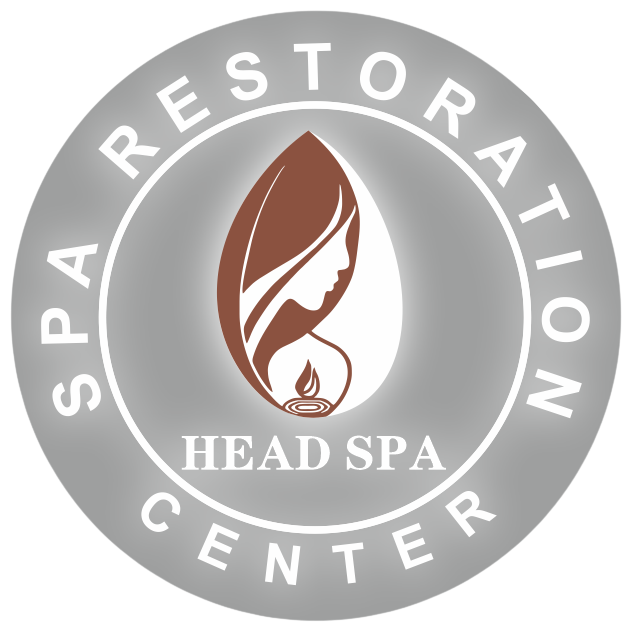
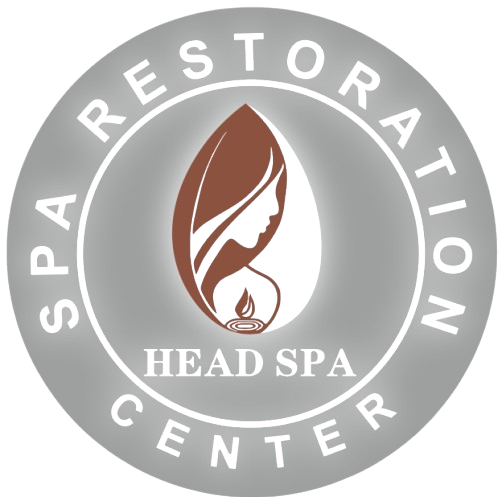
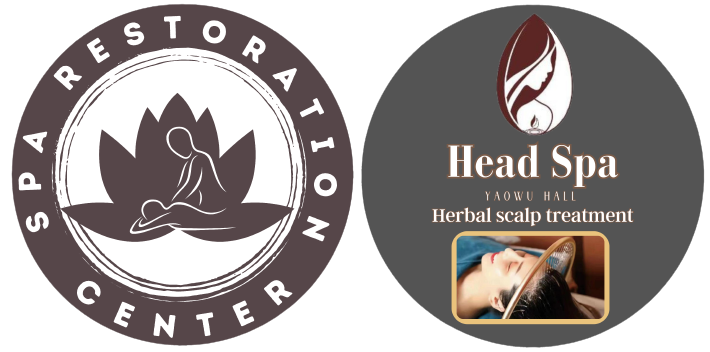
Leave a comment